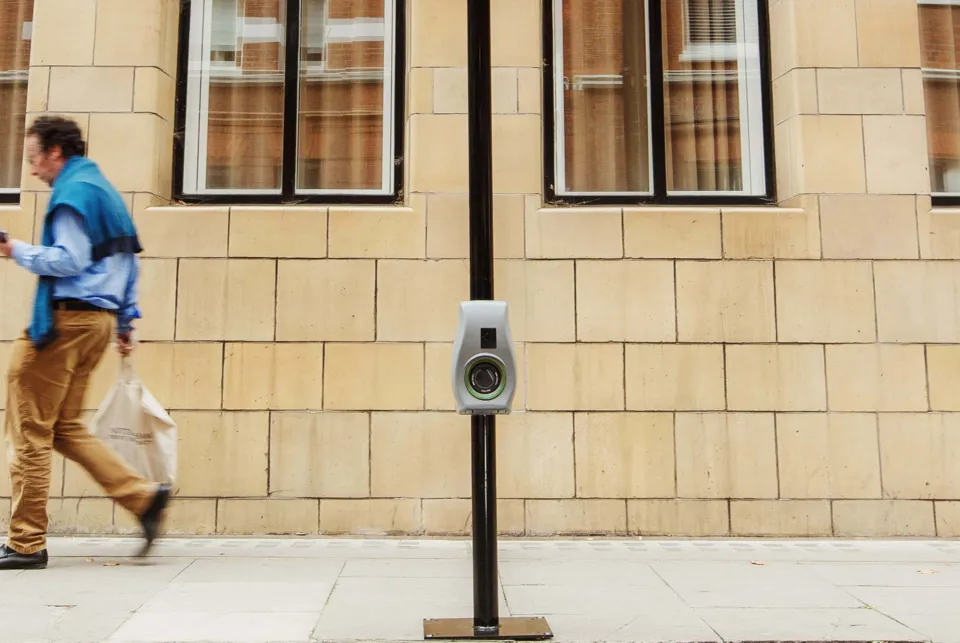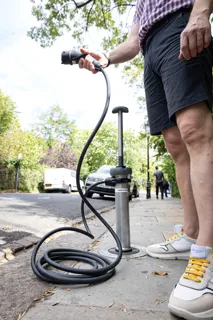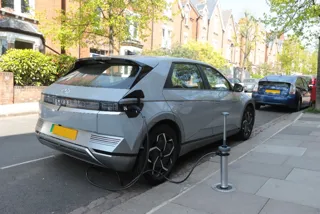The Government has expanded its Local Electric Vehicle Infrastructure (LEVI) pilot, with 16 more councils receiving funding to deliver new charge points.
The LEVI pilot scheme is aimed at delivering commercial electric vehicle (EV) charging infrastructure for residents, from faster on-street charge points to larger petrol station-style charging hubs.
Last year, ministers announced that nine local authorities would receive a share of £20 million to install more than 1,000 public charge points.
The local authorities winning a share of the initial £20m funding were Barnet, Dorset, Durham, Kent, Midlands Connect (with Lincolnshire as a lead authority), North Yorkshire, Nottinghamshire, Suffolk and Warrington.
The Department for Transport (DfT) has now announced that three of those original schemes - Barnet, Durham and North Yorkshire – will be expanded and 16 more local authorities will join the LEVI pilot.
Transport minister Jesse Norman says it will help deliver up to a further 2,400 charge points in the short term.
Meanwhile, it has announced £8m to help councils deliver charging infrastructure in the long term through the LEVI Capability Fund. It aims to equip local authorities with the skills and ambition to scale up their plans when it comes to their charging strategy.
DfT says the funding aims to help local authorities work in tandem with private business and charge point operators (CPOs) to drive the sustainable growth of local networks, building and utilising their collective knowledge and expertise to deliver the most ambitious charge point plans for their area.
In addition to expanding three of the original LEVI pilot schemes, in Barnet, Durham and North Yorkshire, the 16 new pilot scheme areas include: Buckinghamshire; Cumbria; Hackney; Harborough; Hounslow; Lancashire; Norfolk; Oxfordshire; Rotherham; Sunderland; Waltham Forest; Warwickshire; West Midlands; West Sussex; West Yorkshire; and York
Norman said: “The Government is giving local authorities across England additional help today to energise their charge point roll-out plans.
“Today’s commitment will lead to thousands of new chargers being installed, and plans for tens of thousands extra in due course, so that more people than ever can make the transition to using EVs.”
In total, £22m of Government funding for the pilot areas is supported by an additional £17m of private sector investment, and £2m from public funds across local authorities.
RAC EV spokesperson Simon Williams said that, while this is "very positive news", the LEVI-funded projects tend to focus on slow and fast charge points.
"We’d encourage the local authorities concerned to prioritise schemes which include at least some rapid chargers as these help EV drivers to make longer journeys more easily and allow those who can’t charge at home to go electric knowing they can get their cars topped up relatively quickly,” he added.
Help councils develop charging strategies
In terms of LEVI Capability Fund, Tim Anderson, group head of transport at Energy Saving Trust, says it will support access to "convenient and reliable EV charging" for more people, including those without the option of charging at home.
he added: "We’re pleased to be working with the Government to enable the transition to low carbon transport ahead of the phase out of new petrol and diesel cars from 2030. This in turn is an essential part of achieving the UK’s net zero emissions targets.”
Local authorities will need to identify how the LEVI Capability Fund can best support them to increase their capability to deliver EV infrastructure.
Funding is directly available to county councils and unitary authorities, while combined authorities will be allocated and issued aggregated funding on behalf of authorities in their region.
Eligible local authorities will be contacted and notified of their Capability Fund eligibility and asked to make a proposal.
The LEVI Support Body, comprised of Energy Saving Trust, Cenex and PA Consulting, will provide ongoing support and guidance to all local authority applicants – and are the point of contact for any queries or questions about the LEVI scheme.
The support also includes an EV charging insights toolkit, which provides up-to-date data on the projected number of changepoints required, the current trajectory for installations, annual revenue, and operational costs for chargepoints.
Further information on the scheme and the application process can be found from the Energy Saving Trust.
On-Street Residential Chargepoint Scheme funding
Today, also sees the Government bringing forward a further £7m funding for the existing On-Street Residential Chargepoint Scheme (ORCS), bringing the total funding this year to £37m.
Councils can apply for help installing on-street residential charging devices for electric vehicles (EVs) through the scheme.
It is available to all UK local authorities to fund up to 60% of the capital costs of installing on-street residential charging devices.
The aim is to ensure that those without private off-street parking are able to access reliable and affordable charging infrastructure.
Until April 1 2022, the scheme covered up to 75% of the capital costs of installing on-street residential charging devices.
The DfT reports that 3,000 charge points have already been installed under ORCS with a further 10,000 in the pipeline.
However, DfT figures published at the end of last year showed that two-thirds of public on-street charge points paid for through the Government grant had been installed in London.
> Interested in comparing electric vehicle data? Check out our EV tool.
> Interested in ensuring the efficient use of EVs. Check out our dedicated editorial sections: Insight & policy | EV news | Charging & infrastructure | Costs & incentives | Benefit-in-kind | EV case studies | EV road tests
























Login to comment
Comments
No comments have been made yet.